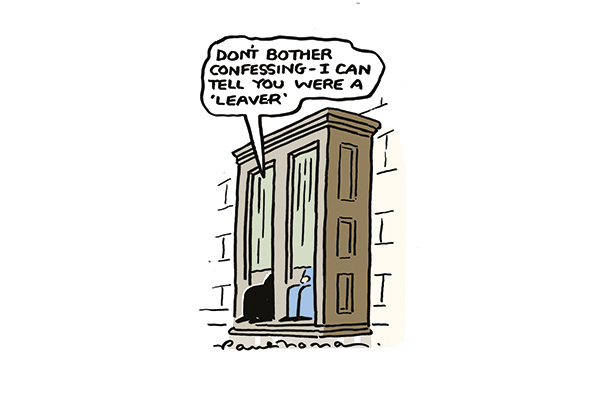The role played by religion has been largely ignored in debates surrounding Brexit – but as a leading Catholic academic points out, religious faith continues to be a decisive factor in shaping the lives and identities of many British people
Donald Tusk’s Dantesque jibe that there is “a special place in hell” for those who promote Brexit without even a sketch of a plan of how to carry it out created a predictable flurry of indignation in the British media and among some politicians. “Mr Tusk is hardly in the Aquinas class as a theologian,” Jacob Rees-Mogg commented tartly.
It was an awkward stumble into eschatology in a debate about Brexit from which religion has been conspicuously absent. Yet British culture has been shaped by Christianity, and the question, “What does it mean to be British?”, is deeply bound up with religious identity for many on both sides of the debate.
It may or may not be true that the flag of the European Union is inspired by the Virgin Mary’s crown of stars – its designer, Arsène Heitz, later claimed that it was. What is not in doubt is that the idea of Europe in its modern form – not as an economic empire nor as a self-serving coalition of powerful states, but as a project of peace that emerged from the blood of the trenches and the ashes of Auschwitz – is to a large extent shaped around the principles of Catholic Social Teaching.



